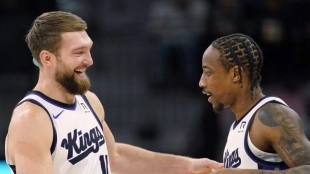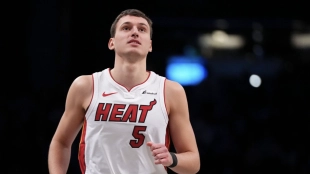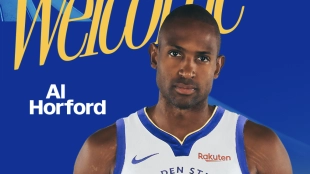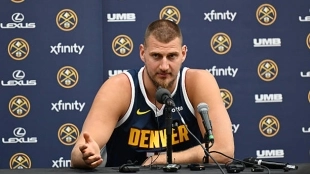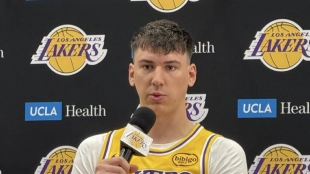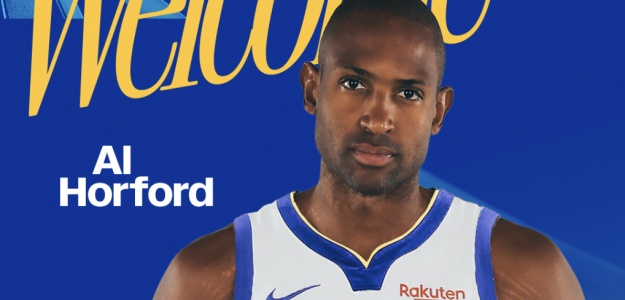
For Al Horford, the decision to leave the Boston Celtics was not easy after spending seven of the last nine seasons there, with the fresh memory of the NBA title he won in 2024, his first in 18 years in the league.
However, when considering his future this summer, two things were clear: he would not retire and, in case of leaving Boston, joining the Golden State Warriors was the most obvious choice.
"It is a great opportunity to compete and win at the highest level," Horford stated during his introduction at the Chase Center. "When I think of the Warriors, I think of Steph [Curry], of Draymond [Green], of Steve Kerr, and seeing Jimmy Butler here. What he did in the second half of last season after the trade and how they are playing. It was not an easy decision to leave Boston, but if there was a place, it was this, and I had the opportunity, so I took it."
A departure from Boston seemed unthinkable when the regular season ended in April. Horford was fully integrated into the franchise, loved by fans and the organization, with his family very much present in the team's daily life. The only question was how much longer his Hall of Fame-worthy career would last.
Everything changed when Jayson Tatum suffered a right Achilles tendon rupture in the fourth game of the Eastern Conference semifinals against the New York Knicks. With the star practically out for the entire 2025-26 season, the Boston management took a different direction: Jrue Holiday and Kristaps Porzingis were traded, while Horford and Luke Kornet left as free agents. The need to readjust finances led to a complete rebuild of a team that had dominated the East for years.
In that context, the possibility of Horford changing course became real. And a move to the Warriors fit naturally: a player capable of providing defensive solidity, spreading the court, and connecting offensively with Curry, Green, and Butler within Steve Kerr's read-and-react system.
"Not only is it important to have a stretch big, but not just any stretch big: it's Al Horford," Kerr pointed out. "He rebounds, defends, is smart, passes well... just by seeing him today, you can tell how well he fits, how natural it is. He can play with Draymond, stretch the floor as a 5, team up with Trayce [Jackson-Davis] so he becomes the roll man and form an inside pair, or play as the center himself and unleash a small-ball lineup. His versatility and how he fits into any lineup make him very valuable from the get-go."
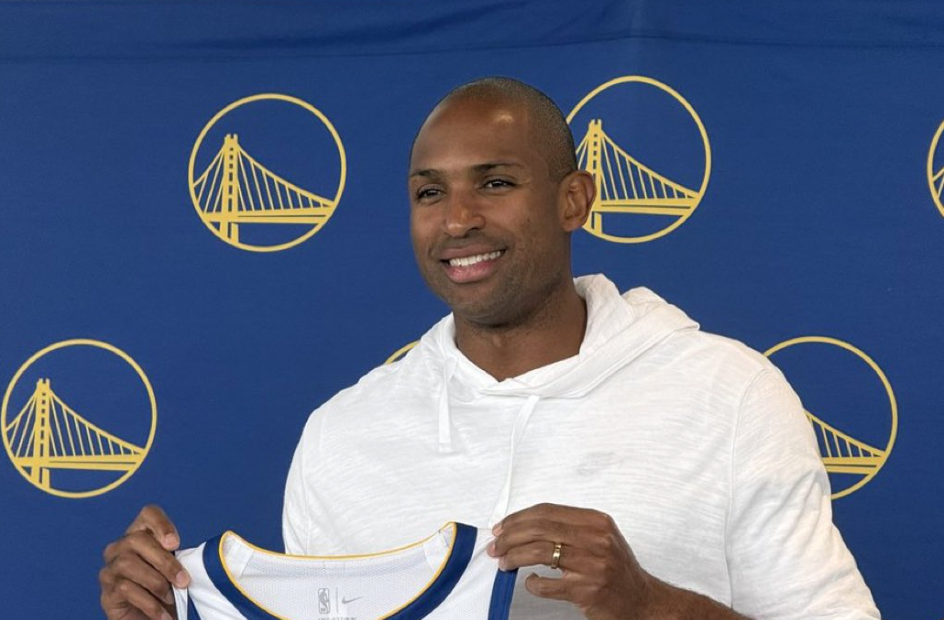
That same versatility was what made him a key piece for the Celtics in recent years, even towards the end of his career. Boston was always cautious with his minutes, avoiding him playing on consecutive nights to manage fatigue. Both Horford and Kerr refrained from giving specific comments on whether this policy would continue, indicating that the medical team would evaluate it during the season.
Horford's contract
Horford's contract, a two-season deal worth 5.7 million with a player option for the second year, was finalized after resolving Jonathan Kuminga's contract situation, which had hindered other Warriors' operations. Once Kuminga was re-signed, deals for Horford, De'Anthony Melton, and other reinforcements were also sealed.
"It was a very strange summer, with a lot of waiting and seeing what would happen, what would be decided," Horford acknowledged. "My focus was on training, preparing, and ensuring I was in the best possible condition when the season started."
This news is an automatic translation. You can read the original news, Al Horford: "No fue fácil dejar Boston, pero si había un lugar al que venir, eran los Warriors"





